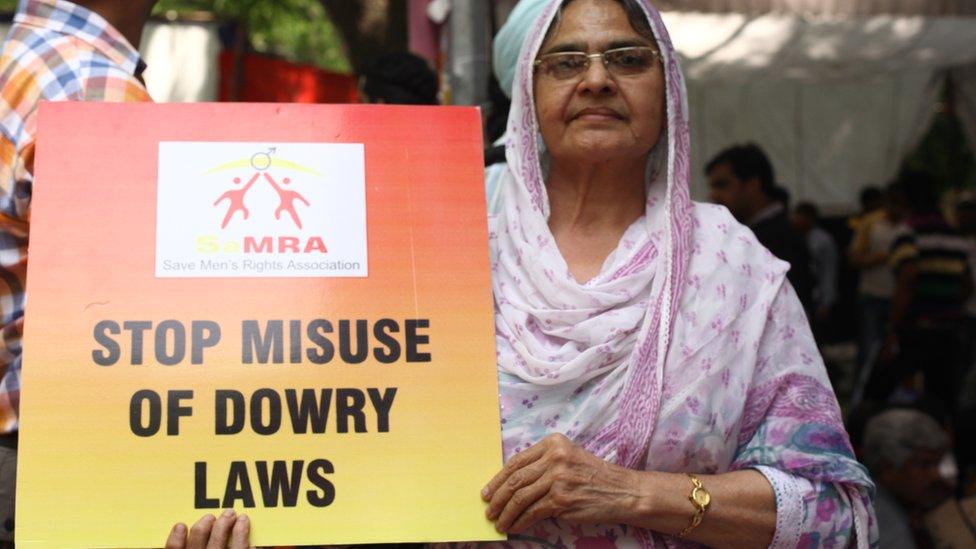India top court orders changes in anti-dowry law to stop misuse
- Published

Protests against the tough anti-dowry law have been growing
India's Supreme Court has ordered the authorities to stop misuse of the anti-dowry law after concerns that a large number of false cases were being filed.
The court said that people accused of dowry harassment should not be arrested until charges were verified.
Thousands of people are arrested every year under the tough anti-dowry law, but conviction rates are low.
Women's rights activists say that the changes will make it harder for the victims of dowry abuse to get justice.
Government data shows that 7,634 women were killed in 2015 in dowry-related incidents.
The practice of dowry has been illegal in India since 1961, but it continues to thrive and campaigners say it leaves women vulnerable to domestic violence and even death.
Paying and accepting dowry is a centuries-old South Asian tradition where the bride's parents gift cash, clothes and jewellery to the groom's family.
To prevent dowry deaths and harassment of brides in their matrimonial homes, India introduced a tough anti-dowry law - Section 498A of the Indian Penal Code - in 1983.
A complaint under the law allows for immediate arrest and jailing of the accused, often the husband and his family members, but campaigners say the provision is frequently misused with many women filing false cases.
On Thursday, the top court asked states to set up a family welfare committee in each district to address these concerns.
"At the time of filing of the complaint, implications and consequences are not visualised. At times, such complaints lead to uncalled for harassment not only to the accused but also to the complainant," the court said.
It added that the committee must speak to all parties involved in a harassment case because "uncalled for arrest may ruin the chances of settlement".
The judges also took notice of the objections against any changes in the law.
"We are conscious of the object for which the provision was brought into the statute. At the same time, violation of human rights of innocent cannot be brushed aside," it added.
The court had taken notice of the misuse of the law during another hearing in 2014.
It had said that the law was enacted to help women, but it was being used as "a weapon by disgruntled wives".